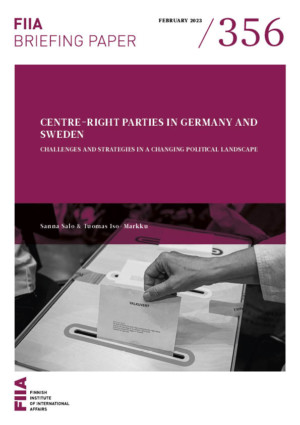Centre-right parties have played a central role in stabilising European party politics and advancing European integration, but the increased fragmentation of party systems and the rise of the radical right present serious challenges to them. The way that centre-right parties respond has important implications for domestic and EU politics alike.
Many European centre-right parties have become divided on their political profile and programme, debating between leaning towards the progressive-liberal or the conservative-authoritarian end of the political spectrum.
In Germany, the rise of the radical-right AfD has fuelled disagreements within the CDU/CSU and generated demands to sharpen its profile. However, this has thus far not led to major changes to the CDU/CSU’s platform, as it is also challenged from the political centre by the SPD and the Greens.
In Sweden, the Moderates have clearly reshaped their political agenda in the last decade, focusing on immigration and law-and-order issues, as well as adopting positions and rhetoric reminiscent of the SD. This shift culminated in the formation of a Moderate-led coalition government supported by the SD in late 2022.



